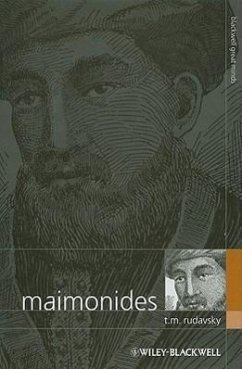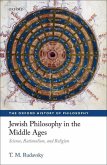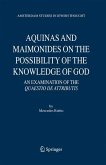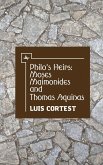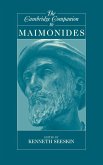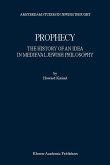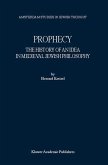This pioneering guide to Maimonides incorporates material from his philosophical, legal, and medical works, thus providing a synoptic picture of the philosophical views of one of the most important Jewish thinkers of all time. The book covers a broad range of topics, including divine predication, proofs for the existence of God, Maimonides' theory of creation, prophecy and miracles, the problem of evil and divine providence, moral theory and the rationality of the law. Rudavsky makes a persuasive case that Maimonides saw himself as being engaged in philosophical dialogue, drawing not only upon his own Jewish tradition, but also upon the ideas of ancient Greek and Islamic philosophers. Unparalleled in scope and accessibility, this concise volume is an invaluable resource for students and scholars of Medieval Philosophy, Jewish Philosophy, and Jewish Studies, as well as non-specialists coming to Maimonides for the first time.
Hinweis: Dieser Artikel kann nur an eine deutsche Lieferadresse ausgeliefert werden.
Hinweis: Dieser Artikel kann nur an eine deutsche Lieferadresse ausgeliefert werden.
"Inrecent years there has been an outpouring of books on Maimonides.This is the best one as far as his philosophy is concerned. Readerswill enjoy [Rudavsky's] presentation of the cut and thrust ofdebate at the time, and the ways it has been continued right up totoday, and there is much to learn from this book. Anyone lookingfor a text to use in the classroom which will engage students onMaimonides' philosophy need look no further since here it is."(Journal of Jewish Studies, 1 March 2011)
T. M. Rudavsky)interpretations are excellent summaries of the master's teachingsand readers can gain much information and thought-provoking ideasfrom reading it. (TheJewish Eye, April 2010)
"Tamar Rudavsky has written a succinct summary of Maimonides'philosophical teachings, highlighting the diverse interpretationsscholars have given them. Her welcome approach is that of asympathetic yet critical philosopher."
--Alfred Ivry, New York University
T. M. Rudavsky)interpretations are excellent summaries of the master's teachingsand readers can gain much information and thought-provoking ideasfrom reading it. (TheJewish Eye, April 2010)
"Tamar Rudavsky has written a succinct summary of Maimonides'philosophical teachings, highlighting the diverse interpretationsscholars have given them. Her welcome approach is that of asympathetic yet critical philosopher."
--Alfred Ivry, New York University

